Education Programs in West Africa and Great Lakes Region
14 August 2023|Chloe Gunther
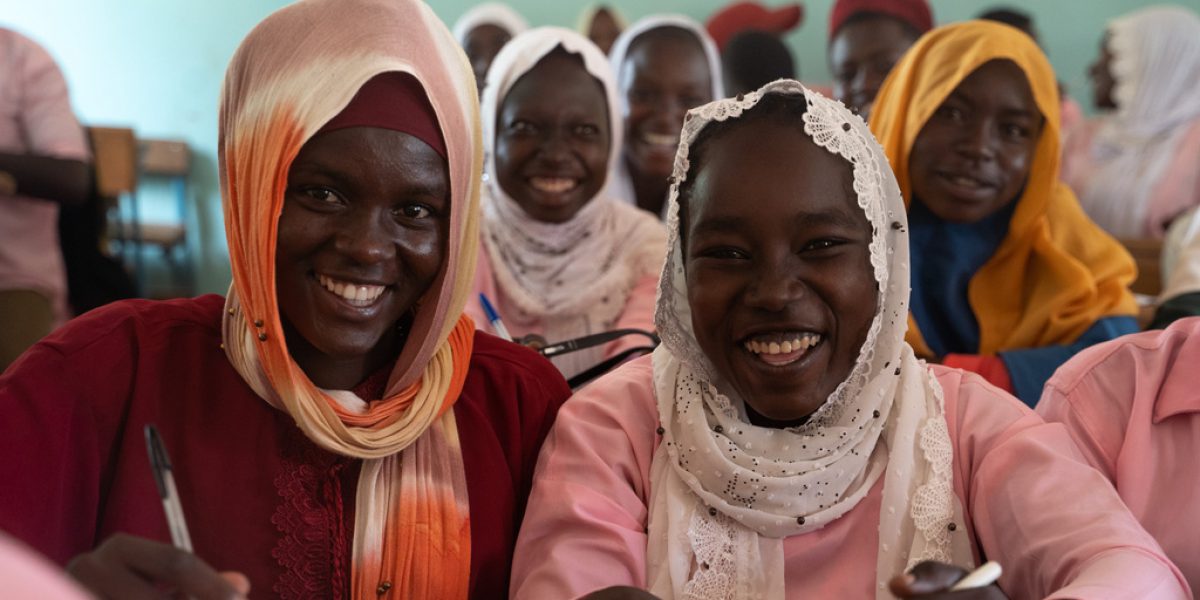
In a recent newsletter, Jesuit Refugee Service West Africa and Great Lakes region highlighted an array of education programs. For many, education is the key to unlocking a brighter future, especially for those whose access to education has been interrupted due to conflict, violence, persecution, or climate change.
JRS Education programs go beyond basic academic goals in the classroom. Our comprehensive approach to learning incorporates holistic practices including the following:
Teacher Preparation in West Africa
Over 60 community teachers from 13 different refugee camps in West Africa have kicked off a training course ahead of the school year to ensure that teachers are prepared to provide equitable and inclusive education to their students.
Mental Health and Psychosocial Support (MHPSS) in Cameroon
Over 6,000 people have died and hundred of thousands more have been displaced due to the continued violence and conflict in Cameroon’s Anglophone regions.
Amid social conflicts, corruption, and violence, hope can be hard to find. But JRS accompanies forcibly displaced people in the most forgotten contexts with the goal of restoring this hope.
“Every day we witness the difference that a simple gestures of compassion, solidarity, and welcome can make,” the staff at JRS Cameroon said.
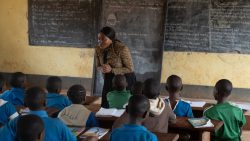
Linda teaches at the JRS supported school, Etoug Ebe, in Yaoundé. “I believe that education is a great investment in a person’s life. It enables people to solve problems that arise in society with peaceful solutions,” she said.
Linda talked about the students she works with and how difficult it is for them to learn when, internally, they are trying to cope with the trauma resulting from the violence they have experienced.
“A mind that is not free cannot learn,” Linda said. She works to make school a space of community despite the varying backgrounds each child comes from. “They learn to ask for forgiveness, to be close to each other, and to help their classmates in difficulty.”
Support for Sudanese Refugees in Chad
Since the outbreak of the war in Sudan, thousands of refugee students have lost access to education.
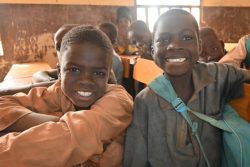 “We are working to make up for the time lost in their education,” said Saleh, the headmaster of the high school in Djabal refugee camp in Chad.
“We are working to make up for the time lost in their education,” said Saleh, the headmaster of the high school in Djabal refugee camp in Chad.
Ahmad Adam is a Sudanese teacher in Djabal refugee camp. “I tell them my own story, I also fled Sudan and now I am a teacher here,” he said.
Sadia Ahmat is a mother of nine children, all of whom fled Sudan are now living in Chad. She spoke about her experience saying: “we fled hostilities of war. I want peace for my children; my wish is that they can go to school in Chad.”
Inclusivity and Gender Awareness in the Democratic Republic of Congo
At the JRS center in the Democratic Republic of Congo, teachers participated in a training focused specifically on inclusive education. The workshop focused on how to adapt to a spectrum of abilities, both physical and mental, that students might live with.
The hope is that this initiative can extend to other schools in the country so that all teachers are adept in meeting the diverse needs of their students.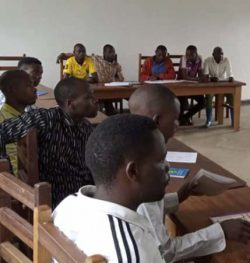
JRS also hosted a workshop for men on positive masculinity. Participants in this workshop became more aware of how their actions impact others and understood the importance of promoting gender equality.
Unfortunately, sexual exploitation is a pertinent and sensitive issue in war in conflict riddled areas. JRS and partners hosted an awareness session where over 200 students and parents learned about different prevention strategies, psychological coping mechanisms, and available methods of incident reporting.
Reconciliation in Nigeria
JRS Nigeria also hosted dialogue sessions for community members and leaders to learn how to challenge inequitable gender norms.
The meetings and conversations helped break household and parenting stereotypes.
One community member, Samuel, spoke about his experience. He said he used to believe that “women should stay in the home to cook, clean, and take care of the children while men should take care of finances, be active in the community, and make decisions for the family.”
“Thanks to JRS, I now see women in a different light through our weekly meetings and community-based activities, like cultural celebrations.”
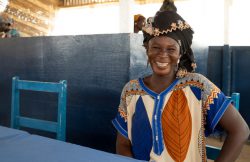 JRS Nigeria has committed to carrying out vital reconciliation work to help refugees and their host communities build healthier relationships. By engaging in discussions, interactive case studies, and workshops, participants explored different approaches to healing divides and conflict resolution.
JRS Nigeria has committed to carrying out vital reconciliation work to help refugees and their host communities build healthier relationships. By engaging in discussions, interactive case studies, and workshops, participants explored different approaches to healing divides and conflict resolution.
“We are now better equipped to navigate complex situations with compassion and empathy, seeking common ground and promoting peaceful resolutions,” participants said.
Around the world JRS strives to make education accessible and meet the needs of forcibly displaced people in a variety of contexts. Visit our education page to learn more.



